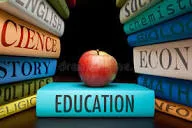Literacy, Education and Experience – Which one is important – 2023
Literacy
Literacy– The concept of literacy, encompassing a wide range of interpretations, refers to “distinctive methods of approaching and engaging with reading and writing . Its primary aim is to grasp or convey thoughts and concepts in written form within a particular and defined context of application.
In societies characterized by literacy, individuals adopt sets of routines for generating and consuming written content. Simultaneously, they hold beliefs regarding these practices.

Perceptions concerning the significance of reading and writing, both for the individual and society, invariably shape the methods through which literacy is instructed, acquired, and employed throughout one’s life journey.
Literacy is a foundational skill that enables individuals to access information, communicate effectively, and perform basic tasks that involve reading and writing. Being literate is essential for many entry-level jobs that require reading instructions, filling out forms, and communicating through written channels. However, solely being literate might limit the types of jobs and opportunities available, as many professions require a deeper level of knowledge and skills that go beyond basic reading and writing.
In short we may say “the ability to read and write is Literacy
Literacy rate of different countries-
AS per the data available as on 2021, here are the approximate literacy rates for a selection of countries around the world. Please note that these rates can change over time due to various factors including improvements in education systems, socioeconomic changes, and government initiatives.

For the most up-to-date information, I recommend checking reliable sources such as UNESCO or national statistical agencies.
North America and Europe:
- United States: Around 99%
- Canada: Around 99%
- United Kingdom: Around 99%
- Germany: Around 99%
- France: Around 99%
Follow Our Digiknowledge.co.in Page for Latest update about Bikes, Cars, Sports, Government Policy and many more.
Asia:
- China: Around 96%
- India: Around 77%
- Japan: Around 99%
- South Korea: Around 97%
Latin America
- Brazil: Around 93%
- Mexico: Around 95%
- Argentina: Around 98%
- Colombia: Around 94%
Africa:
- Nigeria: Around 59%
- South Africa: Around 93%
- Egypt: Around 73%
- Kenya: Around 83%
Oceania:
- Australia: Around 99%
- New Zealand: Around 99%
Education
Education is the transmission of knowledge, skills, and character traits.
Education socializes children into society by teaching cultural values and norms
Education takes on various forms, each with its distinct characteristics.

Formal education
One prevalent form is formal education, which occurs within a structured institutional framework, such as public schools. These educational institutions follow a predefined curriculum and offer a systematic approach to learning.
Non-formal education
In contrast, Non-formal education is another significant mode of learning. This type of education is also organized and structured, but it takes place outside the traditional schooling system. It encompasses a range of organized learning experiences that don’t strictly adhere to the formal educational structure.
Non-formal education can be found in community centers, workshops, vocational training programs, and other similar settings.
Both formal and non-formal education contribute to an individual’s overall knowledge and skill development. While formal education is commonly associated with academic qualifications, non-formal education often caters to specific skills or practical knowledge that might not be covered comprehensively in formal schooling.
This diversity in educational approaches ensures that people have opportunities to learn in ways that best suit their needs and goals.
Education is influenced by a multitude of factors
Psychological Factors:
Psychological factors play a crucial role in determining the success of education. Motivation, the drive to learn and excel, greatly impacts a student’s engagement and willingness to participate actively in their education. Intelligence, or cognitive abilities, affects how well a student grasps and applies new concepts. Personality traits such as curiosity, perseverance, and self-discipline can contribute to effective learning strategies and academic achievement.
Social Factors:
Social factors have a significant impact on educational success. Socioeconomic status (SES) can determine the resources and opportunities available to a student. Students from higher SES backgrounds often have access to better educational resources, extracurricular activities, and supportive environments. Ethnicity and gender can also influence educational outcomes due to societal biases and discrimination that may limit opportunities for certain groups.
Environmental Factors:
Various environmental factors influence educational success. Educational technology, such as online resources and interactive learning platforms, can enhance engagement and facilitate personalized learning. Teacher quality is another critical factor; skilled and motivated teachers can inspire and guide students effectively. Parent involvement and support in a child’s education contribute significantly to their academic progress.
Experience
Experience is the tapestry of moments that shapes who we are. It’s the teacher that imparts lessons beyond textbooks, the artist that paints memories on the canvas of our minds. Every encounter, whether joyful or challenging, adds a thread to this intricate weave. Experience whispers wisdom, strengthens resilience, and fosters empathy. It’s the journey that carves the contours of our character and grants us the unique lens through which we view the world.

Literacy, Education, and Experience
Literacy equips us with the power to decode and communicate ideas, opening doors to knowledge and communication. Education takes this further, nurturing critical thinking and a deeper understanding of the world. However, experience stands as a master teacher, imparting practical wisdom through real-world trials.
Which One is Better for Life:
While all three—literacy, education, and experience—contribute uniquely to life’s journey, their synergy is most potent.
Literacy provides the foundation, education refines it, and experience gives it meaning. The ability to read and write (literacy) is essential for communication and learning.
Education enriches our minds, enabling us to analyze, innovate, and adapt.
Experience tempers our insights, offering the humility of failures and the triumphs of growth.
In truth, they are not isolated choices but interconnected facets of a fulfilling life. A literate mind craves education, while education thrives on real-world application. Experience, often earned through both success and setback, binds the trio into a transformative force. Embracing all three, we navigate life with wisdom, make informed decisions, and continuously evolve.
Which country having highest literacy rate ?
USA , Australia , New Zealand
Which country provides good quality of education ?
As per my knowledge ,USA, Australia and many other developed countries provides good quality of education.
Do talent depends on Literacy or education ?
No,
Is education is necessary for earning ?
No, but it is necessary for good life journey.
Which is best either literacy , education or experience ?
All play its vital role from time to time in life journey.





You need to take part in a contest for among the best blogs on the web. I will advocate this web site!